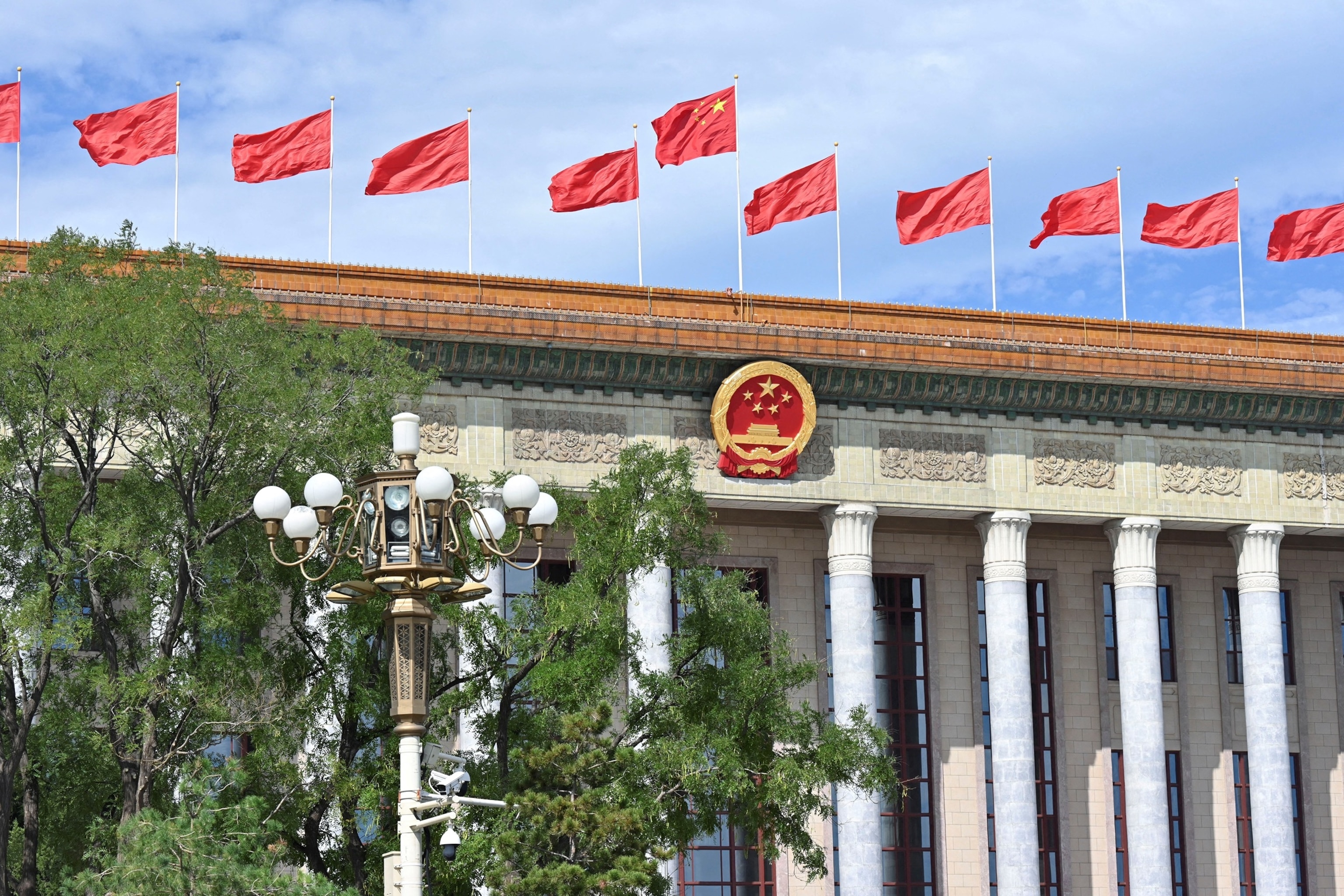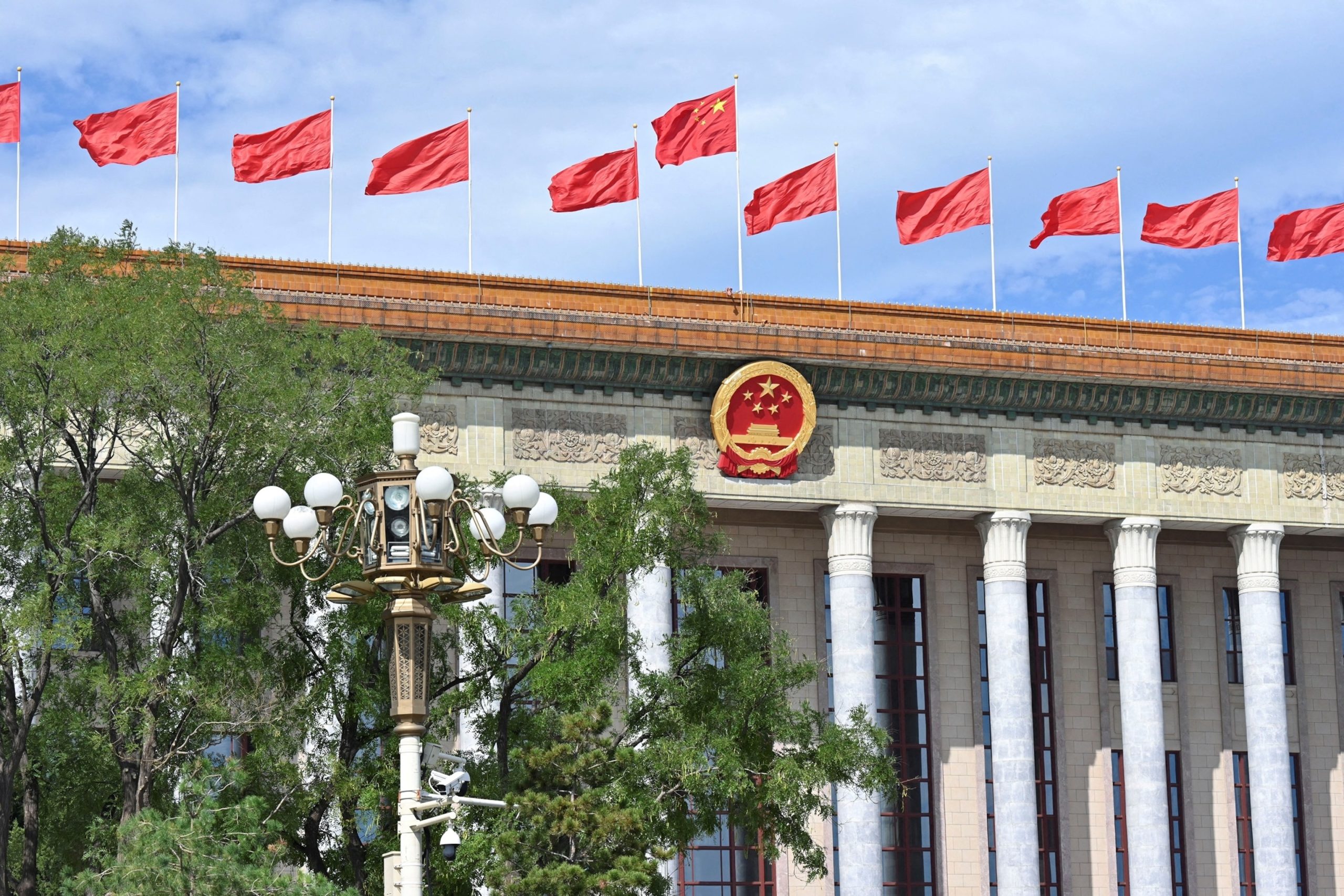HONG KONG and LONDON — The Chinese military test-fired an intercontinental ballistic missile into the Pacific on Wednesday, marking the first known launch of an ICBM in decades, officials said.
The People’s Liberation Army launched the ICBM carrying a “dummy warhead” into the “high seas” at about 8:44 in the morning, the Chinese Ministry of Defense said in a statement. The missile splashed down into the area where they had planned for it to fall, the ministry said. Local media reported that the launch was the first such test since 1980.
“This test launch is a routine arrangement in our annual training plan,” the ministry said. “It is in line with international law and international practice and is not directed against any country or target.”
China’s official Xinhua news agency said “relevant countries” had been notified in advance. But Japanese officials weren’t notified prior to the launch, the country’s chief cabinet secretary told reporters on Wednesday afternoon in Tokyo.

A Chinese national flag flutters during at the Great Hall of the People in Beijing, China, Sept. 5, 2024.
Byron Kaye/via Reuters
“There was no notification beforehand and, according to the comprehensive analysis, we have been confirmed that it flew over our territory and there was no damage recorded,” Hayashi Yoshimasa said, according to an official translation.
The Chinese military’s Rocket Force has been under some domestic scrutiny over the past year, after some top generals were purged last summer over alleged corruption related to equipment procurement. The test-firing may be viewed internationally as a signal of the military’s readiness, despite those purges, which saw two former defense ministers expelled from the Communist Party.
The test launch comes days before Beijing is set to celebrate the 75th anniversary of the founding of the PRC on Oct. 1.
The test-fire also comes as the U.N. General Assembly meets in New York, where U.S. President Joe Biden spoke on Tuesday of his efforts to build a strong trilateral relationship with Japan and South Korea. Those relationships have been part of Biden’s strategy to counter China’s influence in the region.
“These partnerships are not against any nation,” Biden said on Tuesday. “They’re building blocks for a free, open, secure, peaceful Indo-Pacific.”
The United States in April said it had deployed mid-range missiles to Philippines. And Yoshimasa of Japan said on Wednesday that China’s defense budget had been increasing rapidly “without any visibility,” adding that China has been expanding their presence near Japanese territory “with a lack of transparency” about their movement.
“This is a very serious concern for Japan and the international society,” Yoshimasa said.
China recently conducted a test of an intercontinental ballistic missile (ICBM) with an inert warhead, just days after President Joe Biden made remarks about strengthening US alliances in Asia. The test, which took place on Monday, has raised concerns about China’s military capabilities and its intentions in the region.
The ICBM test comes at a time of heightened tensions between the US and China, as both countries compete for influence in the Asia-Pacific region. President Biden has made it clear that he intends to strengthen US alliances in the region, particularly with countries like Japan, South Korea, and Australia, in order to counter China’s growing military and economic power.
The test of the ICBM, which is capable of delivering a nuclear warhead to targets thousands of miles away, is seen as a show of force by China. It is also a reminder to the US and its allies that China is a major player in the region and is willing to use its military capabilities to assert its influence.
While the warhead used in the test was inert, meaning it did not contain any explosives, the test still raises concerns about China’s nuclear capabilities. The fact that China is able to launch an ICBM with such precision and accuracy is a clear demonstration of its advanced military technology.
The timing of the test, coming just days after President Biden’s remarks on US alliances in Asia, is also significant. It sends a message to the US and its allies that China is not afraid to flex its military muscle in response to perceived threats or challenges.
The test of the ICBM is likely to further strain relations between the US and China, as both countries continue to jockey for position in the Asia-Pacific region. It also highlights the importance of maintaining strong alliances and partnerships in order to counter China’s growing influence and military power.
Overall, China’s test of an ICBM with an inert warhead serves as a stark reminder of the complex and increasingly competitive dynamics at play in the Asia-Pacific region. It underscores the need for continued vigilance and cooperation among US allies in order to effectively counter China’s military ambitions.



